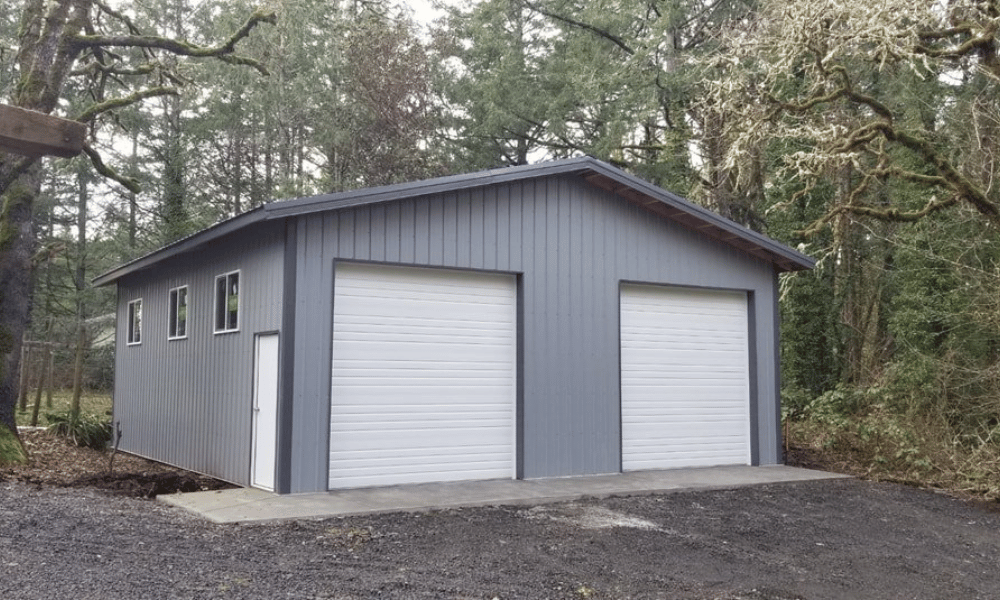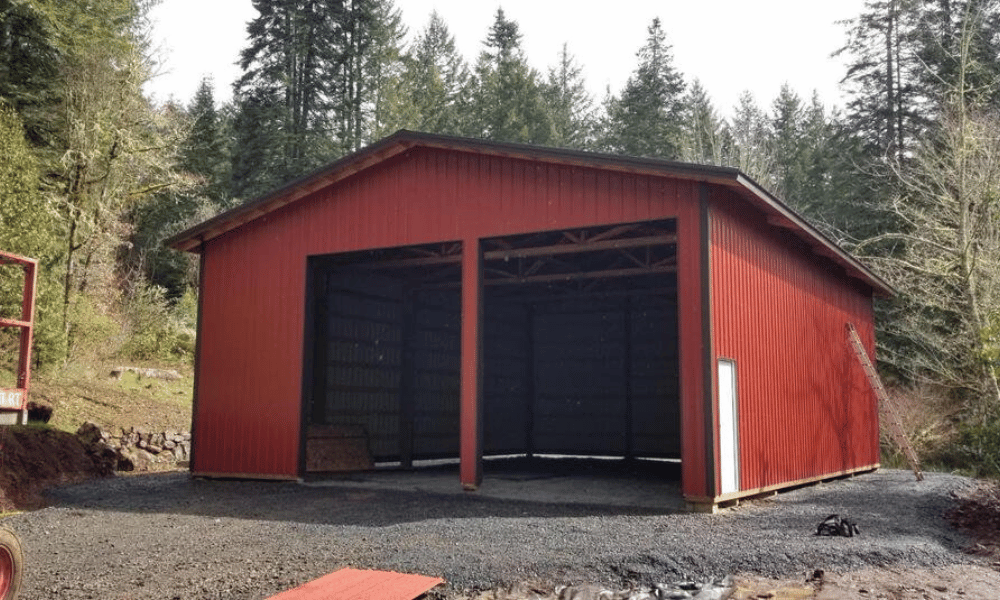Introduction to Pole Barns
When it comes to construction, especially in rural and semi-rural areas, the term "pole barn" is often thrown around. But what exactly is a pole barn? Simply put, it’s a type of building that uses poles or posts embedded in the ground to support the structure. These barns are typically built for agricultural purposes, but their versatility makes them suitable for various applications. The increasing demand for sustainable building practices in recent years has led many to consider pole barns as an efficient and eco-friendly option.
Why should you care about pole barns? Well, they offer numerous advantages that can help you build a better future, whether for your business, personal use, or even as an investment opportunity. In this article, we’ll explore Building a Better Future with Pole Barns: Top Ten Advantages that make them an appealing choice.
What Are Pole Barns?
Understanding the Concept of Pole Buildings
Pole buildings are also known as post-frame construction. Unlike traditional buildings that rely on a foundation made from concrete slabs or bricks, pole barns utilize vertical posts that provide support. Typically made from wood or metal, these poles can be placed deep into the ground to ensure stability.
The Versatility of Pole Barns
One of the standout features of pole barns is their adaptability. Whether you're looking to construct a simple storage shed, a workshop, or even an entire horse barn, these structures can be tailored to fit your needs. This flexibility makes them popular among farmers, hobbyists, and entrepreneurs alike.
Building a Better Future with Pole Barns: Top Ten Advantages
1. Cost-Effectiveness of Pole Barn Construction
When it comes down to it, one of the biggest selling points for any construction project is cost. The initial investment in a pole barn tends to be lower than other types of structures. Why? Because they require fewer materials and less labor—saving both time and money.
Breaking Down Costs
- Materials: Wood posts and metal siding are generally less expensive than bricks or concrete. Labor Efforts: The simplicity of design means quicker assembly times.
2. Quick Construction Timeframes
Time is money in any https://beaufergusonn75.gumroad.com/p/the-art-of-stacking-efficiently-storing-supplies-in-your-pole-barn-dc0e6de7-367b-4306-bd7e-66b39c11e171 business operation. With pole barns being easier and faster to construct compared to conventional buildings, you can move from planning to execution without significant delays.
Factors Influencing Quick Builds
- Less complex designs allow for rapid assembly. Fewer weather-related delays due to simpler framing techniques.
3. Durability and Longevity
Pole barns aren’t just quick fixes; they’re built to last! With proper maintenance, these structures can withstand harsh weather conditions like strong winds and heavy snowfall.
Materials That Stand the Test of Time
- Pressure-treated wood for longevity. Metal roofs resist rusting and corrosion.
4. Sustainable Building Practices
In today's world where sustainability matters more than ever before, pole barns shine as eco-friendly options. Using locally-sourced timber minimizes carbon footprints while offering natural insulation properties.
Sustainable Features
- Renewable resources like wood minimize environmental impact. Minimal waste generated during construction leads to greener practices.
5. Design Flexibility
When thinking about space utilization, design flexibility is crucial! You can customize your pole barn according to specific needs—adding windows, doors, or ventilation systems without breaking the bank.
Customization Options
- Open-concept layouts allow for versatile use. Easily adaptable layouts for future expansions.
6. Energy Efficiency Benefits
Pole barns have excellent thermal properties thanks to their design and materials used in construction. Insulated walls keep your interiors comfortable year-round while reducing energy consumption.
Energy-Saving Features
- Insulation techniques that prevent heat loss. Orientation choices maximize natural light during daylight hours.
7. Low Maintenance Requirements
Let’s face it; no one wants endless upkeep tasks stealing away precious time! Thankfully, with minimal ongoing maintenance required compared to traditional buildings—pole barns really take some weight off your shoulders!
Maintenance Checklist
- Occasional inspections for structural integrity. Simple cleaning routines keep exteriors looking fresh!
8. Versatile Usage Scenarios
From agricultural applications like storing hay or livestock housing through recreational uses such as garages or workshops—the possibilities are endless when using pole barns!
Examples of Uses
| Use Case | Description | |----------------------|---------------------------------------| | Agricultural Storage | Store tools & equipment securely | | Workshops | Ideal for woodworking projects | | Recreational Spaces | Perfect spots for hobbies & leisure |
9. Enhanced Property Value
Investing in quality structures like pole barns not only serves immediate needs but also increases property value over time—especially if you choose features that appeal broadly across potential buyers!
Value Addition Techniques
- Well-planned layouts increase functionality. Quality finishes enhance aesthetic appeal.
10. Community Impact Through Local Sourcing
By opting for local suppliers when building your pole barn contributes positively towards community economies while ensuring sustainability goals remain intact—a win-win situation!
Supporting Local Economies
- Jobs created by sourcing materials locally. Strengthening community ties through collaboration with nearby businesses.
FAQs About Pole Barns
What materials are best suited for constructing a pole barn?
Using pressure-treated wood along with metal siding is ideal since they provide durability against pests and weather conditions while being cost-effective too!

Can I build a pole barn myself?
Absolutely! With basic carpentry skills and the right tools at hand (plus some guidance), many people successfully undertake DIY projects involving their own custom-designed pole barns!
Are there zoning regulations regarding building a pole barn?
Yes! It’s essential first check local zoning laws before starting any construction project; regulations may vary based on location so always stay informed!

How long will my pole barn last?
With proper maintenance—including inspections every few years—many well-built wooden structures last anywhere from 20 years up to several decades depending on environmental influences present within each area!
Do I need permits before constructing my own?
Most likely yes; check local government requirements beforehand as obtaining necessary permits ensures compliance with safety standards while protecting investments made throughout this process!
What kind of insulation works best inside my new structure?
Foam board insulation offers great thermal resistance paired alongside fiberglass batts which work well together enhancing overall energy efficiency without compromising space inside living areas either way!
Conclusion
Ultimately choosing between different types of structures boils down not only personal preferences but also practical considerations such as cost-effectiveness—and that’s where our discussion surrounding Building a Better Future with Pole Barns: Top Ten Advantages comes into play beautifully! From affordability through sustainability efforts up until increased property valuation possibilities—there’s simply no denying how beneficial these unique constructions prove themselves overtime leading individuals toward smarter long-term decisions allowing everyone involved greater peace-of-mind knowing they’ve made sound choices regarding future investments too! So why wait? Start exploring options today; who knows what amazing opportunities await just beyond horizon line waiting patiently until discovered right at fingertips reach away!